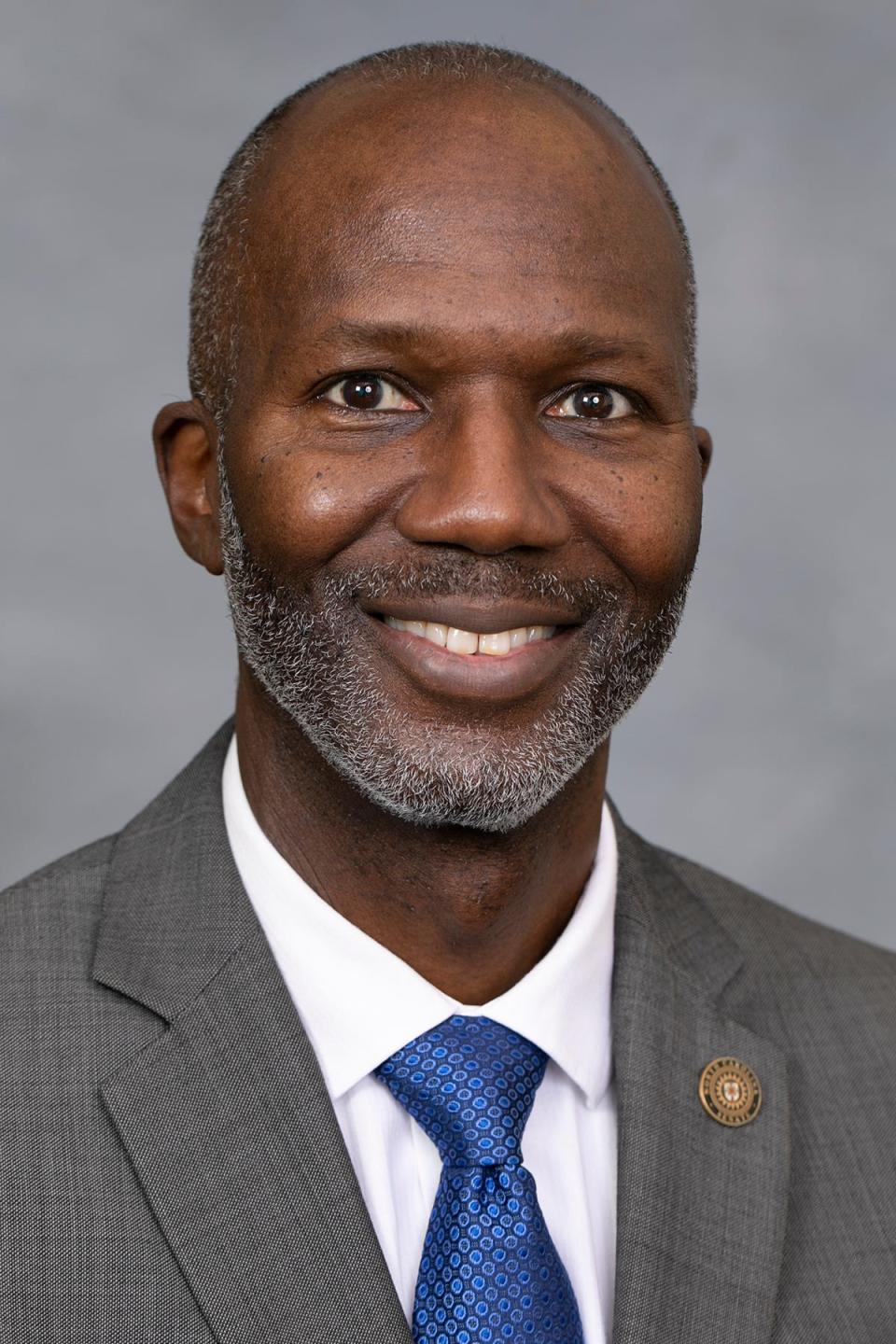Troy Williams: NC redistricting leaves Cumberland County with short straw, some say
- Oops!Something went wrong.Please try again later.
- Oops!Something went wrong.Please try again later.
On Wednesday, a panel of North Carolina judges and the N.C. Supreme Court approved a finalized set of voting maps. The decision leaves some local political observers accusing Cumberland County of getting the short end of the stick, again, because it splits the county into two congressional districts.
In a press release, Cumberland delegation house member Rep. John Szoka (R) said: “The three-judge panel in charge of the North Carolina redistricting lawsuit issued a ruling approving the North Carolina House and NC Senate maps as submitted by the legislature. They did not approve the legally drawn maps for Congressional Districts and instead substituted a map that they drew with the assistance of court-appointed special masters.”
More: Bob Paroli, Fayetteville football coaching legend, helped youngsters reach their potential
African-American voters are an important demographic for the Democratic voter base, and how the court’s special master redrew the districts is surprising to some political watchdogs. Dave Wasserman, U.S. House editor of the nonpartisan Report, tweeted: “The NC special masters’ map is pretty much exactly proportional to the state’s lean (7R-6D-1C), but it makes some curious choices to get there. Most notably, it splits Black communities down the middle in Charlotte, Winston-Salem, Fayetteville, and Raleigh.”

Democrats claim their loss of political power in North Carolina is tied to partisan, gerrymandered maps. The accusation may explain setbacks in legislative and congressional races, but simple math leaves them without an excuse for statewide races.
More: Troy Williams: The COVID-19 pandemic is drawing battle lines
The majority of North Carolina registered voters are Democrats. Republicans rank third behind unaffiliated voters. Six out of 10 of the council of state offices, which are statewide races, are occupied by Republicans. Both U.S. Senate seats are Republican, and Republican presidential candidates are perennial winners in North Carolina.
Why are Democrats having a tough time winning statewide races? The simple answer is that it’s not about numbers but rather about public policy. Democrats need to find a mirror and do some serious soul-searching instead of looking for partisan liberal judges to bail them out of elections.
More: Troy Williams: I worked as a narcotics officer in Fayetteville. I changed my mind on marijuana.
Hours after last week’s ruling, Republican leaders in the statehouse said they would appeal over the congressional map, which they said was “drawn in an unknown black-box manner.”
House Speaker Tim Moore called the court’s decision nothing short of egregious. State Sen. Kirk deViere of Fayetteville (D) said, “We have seen many twists and turns in the process, and we aren’t done yet. People deserve to have full confidence in the redistricting process and the power of their vote – anything short of that begins to strip away their voice and right to vote.”


Rep. Szoka says if the map holds after the judicial process is complete and a final order is issued, he intends to run in NC Congressional District 9. District 9 includes parts of Cumberland County (including Fort Bragg), Harnett, Richmond, and all of Hoke, Scotland, Moore, Lee, Chatham and Randolph.
State Sen. Ben Clark (D) is also a candidate for District 9. A Thursday morning tweet indicated U.S. Congressman Richard Hudson (R) would also file for the 9th District. Hudson presently serves in District 8. Cumberland County Commissioner (D) Charles Evans is also expected to run. He has not given official notice at the time of this publication.

While filing reopens for non-congressional seats across North Carolina, it unfolds against a backdrop of intense partisan division. The negative sentiments among partisans toward the opposing party continue to deepen.
Huge savings: $1 for 6 months
Subscribe today to support local journalism and enjoy unlimited digital access including videos, apps, sports news, and more. Special introductory offer for new subscribers only.
Most people are moderates, and in both parties, social media users with relatively moderate views are more reluctant to post about political and social views. However, the folks on the far opposite ends of the political spectrum are more engaged and appear more politically polarized. I keep hoping things will get better, but they seem to worsen.
America’s political woes are a lot deeper than partisan gerrymandered maps and red and blue counties and states. True democracy is about accountability and putting the citizens first.
Troy Williams is a member of The Fayetteville Observer Community Advisory Board. He is a legal analyst and criminal defense investigator. Williams also does a weekly podcast, RUD:Educate, with Fayetteville City Councilwoman Tisha Waddell and former N.C. Rep. Elmer Floyd. He can be reached at talk2troywilliams@yahoo.com.
This article originally appeared on The Fayetteville Observer: Troy Williams: NC redistricting leaves Cumberland County with short straw, some say

